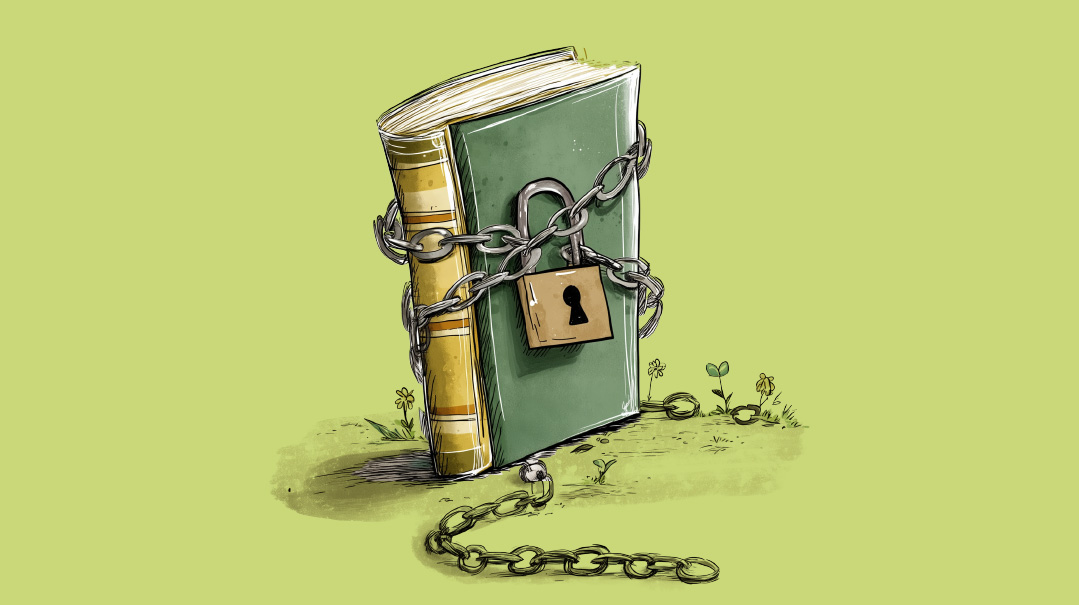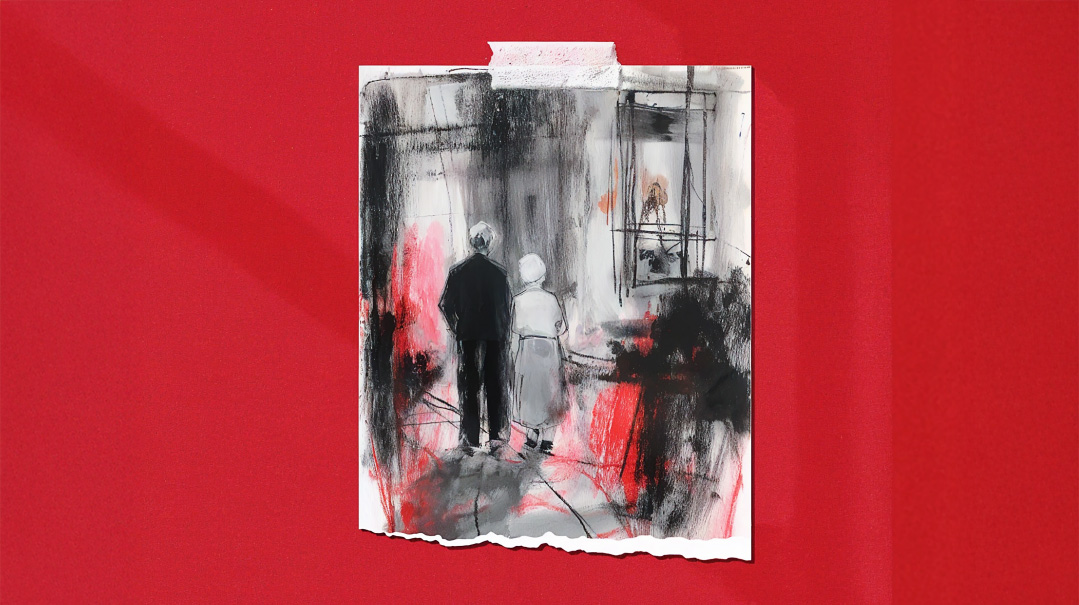Family First Inbox: Issue 801

True friendship is not measured by oversized helium balloons, outrageously expensive sets of china, and expensive wedding shtick

Don’t Set High Standards [Words Unspoken / Issue 799]
Kudos to the girl who wrote the Words Unspoken to her engaged friend. She so clearly depicted the struggle experienced by many single women, who are expected to spend large sums of money as each of their friends get married. This is a problem that we have created. There should be no expectations of anyone to do anything. Obviously, friends of the kallah want to celebrate with her, but no one should feel forced to do things that they don’t have the time, money, or emotional energy for.
To all the girls out there who are just starting shidduchim: Don’t set an unattainable standard! When your first friend gets engaged, it’s very exciting, fresh, and new. You will have a lot of energy, excitement, time, and most probably some money to decorate, prepare, arrange, and pay. By the time you get to the seventh, eighth, tenth in one year, the dwindling number of single friends begin to feel tired and resentful, bound to unrealistic expectations that are now set in stone.
Whatever you do for your first friend will set a standard for what is expected for the rest of your group. If you give the first friend an expensive vort gift, spend hundreds of dollars on a shower, and arrange expensive shtick, you will be expected to do that for each one of your friends when she gets engaged. And as more of your friends get married, the less “extra” money they’ll have to contribute to expensive gifts, and the single friends will end up picking up the tab.
Get together with your friends now, before any of you are engaged, and decide that, no, you will not feel pressured to spend hundreds of dollars for each other’s simchahs. There are ways to make showers that are beautiful and in good taste, practical gifts that are meaningful and well-priced, and cute wedding shtick that will be mesameiach the kallah, all without breaking the bank. By doing this, you ensure that you and/or your single friends won’t feel pressured and resentful down the line.
True friendship is not measured by oversized helium balloons, outrageously expensive sets of china, and expensive wedding shtick; it’s measured by the happiness that you share and how you celebrate your friends’ simchahs wholeheartedly.
Hoping for change
Is This Chinuch? [Family Table / Issue 799]
Mazel tov and welcome back to Chanie Nayman! I’m a great fan of her incredible recipes, hacks, and kitchen know-how.
Her letter about her kids’ blackened socks definitely had me nodding in empathy. But “just spending another $100 to buy a few more pairs of socks” raised some questions. Yes, we can afford to buy our kids more socks. And more socks again. But do we throw money at our kids to buy ourselves some peace, or invest effort to train them into responsible, mature habits? Do we buy them more and more supplies, simply because we can afford to, or are they better served in the long run by learning to take care of their stuff?
Is everything disposable?
I think of expensive camp clothing left behind in lost property, and I think that maybe chinuch sometimes needs more thought and direction than the short-term Band-Aid solution of “just buy more.”
Even though it’s harder.
R.G.
Not an Underdog [Surprising Strength / issue 799]
The article “Surprising Strength” discussed the intriguing phenomenon of society’s “underdogs” often succeeding beyond anyone’s expectations, precisely because their difficult personal circumstances pushed them to learn how to find creative solutions to life’s challenges. The theme is well-taken.
But the article seemed to agree with the assessment of the secular author Malcolm Gladwell, that this phenomenon explains the unexpected defeat of Goliyas at the hands of Dovid. I was dismayed that the editors of Family First did not insist on a clear rejection of ascribing Dovid’s success to this natural phenomenon.
The Torah outlook on the great Dovid Hamelech was does not allow for reducing him to modern psychological assessment, “understanding” him in our own human terms. Dovid himself declares that he is fighting Goliyas with a superhuman “weapon” — the Name of Hashem. While the article does cite that quote, it does not attribute Dovid’s victory to his spiritual stature, and to the special siyata d’Shmaya he clearly received.
Instead, it follows Gladwell’s thesis, explaining in very human terms, that Dovid’s circumstances prepared him for his expertise in using a slingshot, and that his having grown up as an emotional outcast in his family explains why he was able to ignore the usual protocols of war.
Reducing Dovid HaMelech to this level does not belong in a Torah publication.
Batya Gallant
Yerushalayim
Family First responds:
Thank you for your letter. We certainly agree that Dovid Hamelech’s victory resulted from siyata d’Shmaya, and meant only to cite Gladwell’s book as a springboard for discussion. We regret not making that point forcefully.
Seek Help for PMAD [Broken Flutters / Issue 797]
Thank you for your beautiful story about postpartum depression and anxiety. We would like to shed a little light on this extremely difficult and common challenge.
As an organization that provides counseling for women struggling with pregnancy and the postpartum period, we know that one of the difficulties mothers face in accessing help for perinatal mood and anxiety disorders (PMADs, mood, and anxiety disorders that emerge during pregnancy and up to a year postpartum) is that many women internalize their symptoms as character flaws instead of symptoms — a harmful and discouraging belief.
If something doesn’t feel right to you during pregnancy or postpartum, consider the possibility that you may be experiencing a perinatal mood disorder before coming to the conclusion that you are flawed. And embrace the empowerment that such recognition gives you: Once you can name your struggle, we can all do our best to find a way out of it.
If you’re concerned that you may be at risk for a postpartum mood disorder, seeking help while still pregnant can have massive positive implications. Common risk factors for PMAD are history of PMAD, family history of PMAD, poor marital relationship, poor social support, stress, severe premenstrual syndrome, difficult infant temperament, severe financial difficulties, and a complicated and difficult pregnancy. When a woman comes in during pregnancy, we help draw up a postpartum support plan that can be a safety net for what may be some very challenging months ahead.
Don’t push through months and months of suffering before concluding this is “real” and you can get help. If you don’t feel good emotionally past the three-week mark, reach out and see if you may benefit from outside interventions.
It’s important to note that the more out of control a mother may feel internally, the more important it may become to her to maintain her perfect and controlled exterior. What this means is your beautifully dressed sister with her matching infant may be waiting for someone to tell her it’s okay if this is hard. Your neighbor who volunteers for every chesed opportunity three months after birth may wish you would tell her feeling sad is not a failure. Try to look past the exteriors and give grace wherever you can.
With much respect and empathy to all those struggling,
Nefesh Achat B’Yisrael
Support Center for Pregnant and Postpartum Women
nefesh@netvision.net.il
Suffered in Sem [Inbox / Issue 796]
Reading Sarah Chana Radcliffe’s original article on relationship OCD/limerence struck me right away, but what hit me even harder was the letter writer who spoke about her own experience with this disorder in seminary; reading the letter, I thought, “Did I write this?” It could have been coming straight from my own mouth.
You see, I suffered with many of the intense symptoms of limerence throughout my own year in Eretz Yisrael. And although I’m grateful to say that I was able to pull myself out of it to make the most of my year, it is also true that this experience brought on a lot of trauma for me. In this emotionally strange, terrifying situation, I felt more alone than I ever did in my entire life. However, what I would like to point out is how my experience indicates a broader topic that needs to be addressed.
I will say preemptively that the following words will not sit well with those who believe seminary to be the best thing since sliced bread. However, if I suffered, and — as the previous letter writer indicates — others suffered, as well, from the emotional intensity that can be wrought from this environment, I think it is no wiser to remain silent. Have we ever, as a broader community, truly contemplated the unspeakable dangers inherent within the framework of the seminary experience? Why is it that seminary is the characteristic prerequisite to shidduchim and to life? As a recent sem girl myself, I can say with certainty: A dorm filled with 100 plus girls for many long months, all in a bubble of their own independence, in a country far, far from home, is a scary, scary thing. Yes, I believe in the quality and trustworthiness of our bnos Yisrael. But sometimes, a circumstance is doomed to fail, without it being the fault of the individuals within it.
There may be many who disagree with my point. Some may say it is only a problem for those “emotionally weak.” I would tend to disagree. A person never knows just how weak they can be emotionally until they are put into a situation that tests this resilience.
A former sem student
Hope for Hyperhidrosis [Medical Mystery / Issue 793]
When deciding if I should go public with my story about hyperhidrosis, I was very hesitant. I’d experienced so many years of silent humiliation; I wasn’t sure I’d be able to expose myself this way. Yet I felt that if even one person gets help or support from hearing my experience, then it’s worth it. And the responses have been overwhelming. So many have reached out, several telling me that this was the first time they’ve ever opened up to someone about their condition. Others said they thought they were the only ones who experienced this. Still others said they’d given up on trying to look for cures.
Hyperhidrosis is a chronic condition, and those experiencing it are constantly seeking new solutions. Even successful treatments often require constant maintenance, which is physically and emotionally draining. Hearing so many people’s experiences, I realized that there is a need for more support.
Those interested in joining a group where we share our experiences and ideas can email Hopeforhyperhidrosis@gmail.com.
Glad I Shared
(Originally featured in Family First, Issue 801)
Oops! We could not locate your form.







